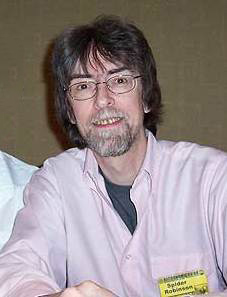A Quote by Marquis de Sade
Anything beyond the limits and grasp of the human mind is either illusion or futility; and because your god having to be one or the other of the two, in the first instance I should be mad to believe in him, and in the second a fool.
Related Quotes
And as much as I’d like to believe there’s a truth beyond illusion, I’ve come to believe that there’s no truth beyond illusion. Because, between ‘reality’ on the one hand, and the point where the mind strikes reality, there’s a middle zone, a rainbow edge where beauty comes into being, where two very different surfaces mingle and blur to provide what life does not: and this is the space where all art exists, and all magic.
This is what it is to be human: to see the essential existential futility of all action, all striving -- and to act, to strive. This is what it is to be human: to reach forever beyond your grasp. This is what it is to be human: to live forever or die trying. This is what it is to be human: to perpetually ask the unanswerable questions, in the hope that the asking of them will somehow hasten the day when they will be answered. This is what it is to be human: to strive in the face of the certainty of failure. This is what it is to be human: to persist.
There are for man only two principles available for a mental grasp of reality, namely, those of teleology and causality. What cannot be brought under either of these categories is absolutely hidden to the human mind. An event not open to an interpretation by one of these two principles is for man inconceivable and mysterious. Change can be conceived as the outcome either of the operation of mechanistic causality or of purposeful behavior; for the human mind there is no third way available.
Our moral reasoning is plagued by two illusions. The first illusion can be called the wag-the-dog illusion: We believe that our own moral judgment (the dog) is driven by our own moral reasoning (the tail). The second illusion can be called the wag-theother-dog's-tail illusion: In a moral argument, we expect the successful rebuttal of an opponent's arguments to change the opponent's mind. Such a belief is like thinking that forcing a dog's tail to wag by moving it with your hand will make the dog happy.
You must make your choice: either this man was, and is, the Son of God, or else a madman or something worse. You can shut him up for a fool, you can spit at him and kill him as a demon; or you can fall at his feet and call him Lord and God. But let us not come with any patronizing nonsense about his being a great human teacher. He has not left that open to us. He did not intend to.
You either choose this method of passing the evening because you are in each other's confidence, and have secret affairs to discuss, or because you are conscious that your figures appear to the greatest advantage in walking;— if the first, I should be completely in your way, and if the second, I can admire you much better as I sit by the fire.
Either the material order is the whole of being, wherein all transcendence is an illusion, or it is the phenomenal surface - mysterious, beautiful, terrible, harsh, and haunting - of a world of living spirits.... One should... be able to recognize that it is only the latter view that has ever had the power - over centuries and in every realm of human accomplishment - to summon desire beyond the boring limits marked by mortality, to endow the will with constancy and purpose, and to shape imagination towards ends that should not be possible within the narrow economies of the flesh.
If someone does something we disapprove of, we regard him as bad if we believe we can deter him from persisting in his conduct, but we regard him as mad if we believe we cannot. In either case, the crucial issue is our control of the other: the more we lose control over him, and the more he assumes control over himself, the more, in case of conflict, we are likely to consider him mad rather than just bad.
Understanding God is not attained by calling into session all arguments for and against Him, in order to debate whether He is a reality or a figment of the mind. God cannot be sensed as a second thought, as an explanation of the origin of the universe. He is either the first and the last, or just another concept.
First of all, you ask me if the God of Christians forgives one who doesn't believe and doesn't seek the faith. Premise that - and it's the fundamental thing - the mercy of God has no limits if one turns to him with a sincere and contrite heart; the question for one who doesn't believe in God lies in obeying one's conscience.
If two people stare at each other for more than a few seconds, it means they are about to either make love or fight. Something similar might be said about human societies. If two nearby societies are in contact for any length of time, they will either trade or fight. The first is non-zero-sum social integration, and the second ultimately brings it.
Do you believe that the God of Jesus loves you beyond worthiness and unworthiness, beyond fidelity and infidelity—that he loves you in the morning sun and in the evening rain—that he loves you when your intellect denies it, your emotions refuse it, your whole being rejects it. Do you believe that God loves without condition or reservation and loves you this moment as you are and not as you should be.
I believe in having a more open mind and including others who don't share your faith and having dialogue with them. And just having a pure heart and being a good person can bring you closer to God. Because once you believe in one particular religion fully and not others, that requires you to start disliking people who don't share your views.
... you must hasten to oppose pernicious pride of mind, before it penetrates into the marrow of your bones. Resist it, curb the quickness of your mind and humbly subject your opinion to the opinions of others. Be a fool for the love of God, if you wish to be wiser than Solomon: 'If any man among you seem to be wise in this world, let him become a fool, that he may be wise' (I Cor. 3:18).





































